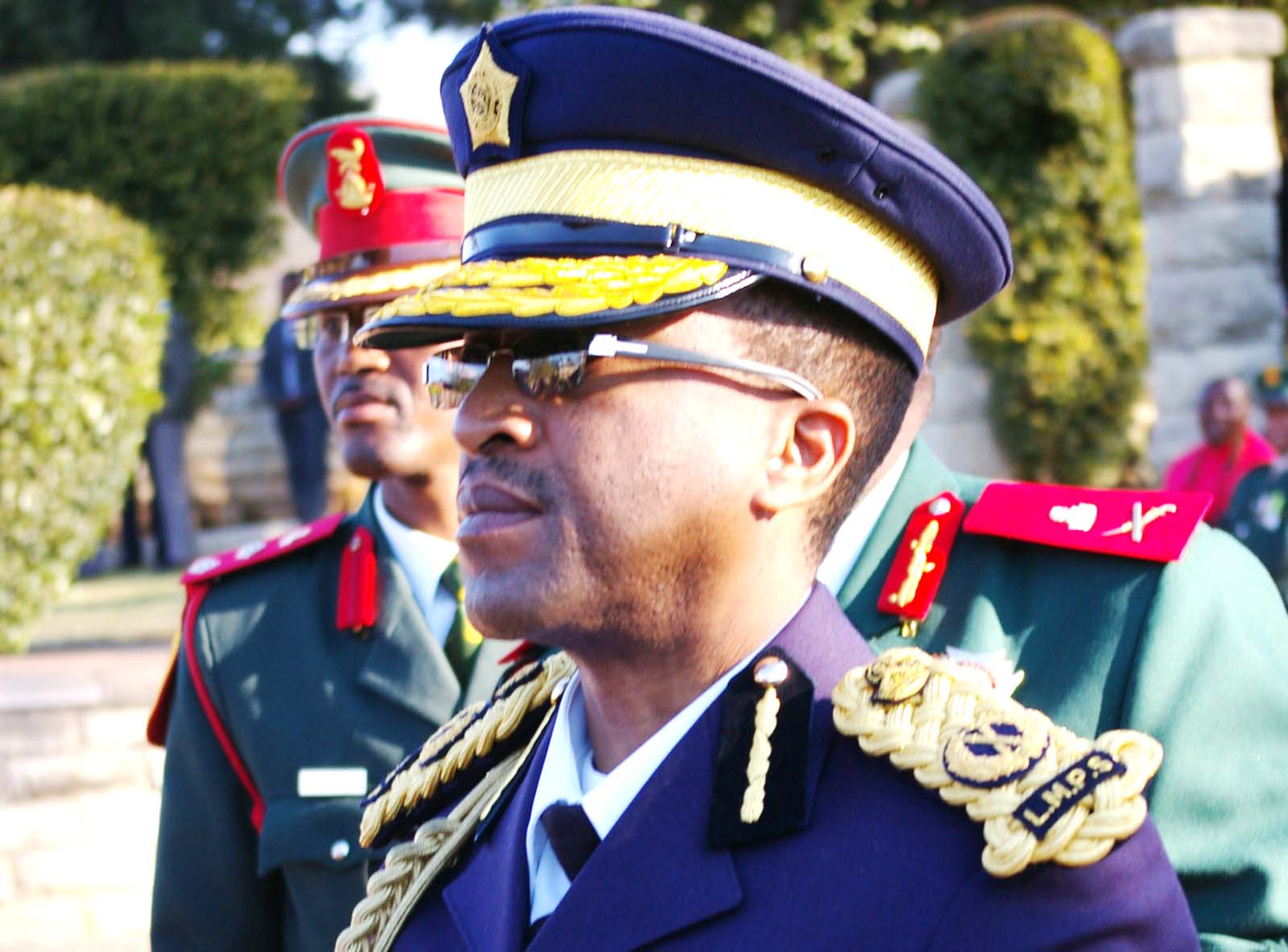
’Marafaele Mohloboli
FORMER Commissioner of Police Kizito Mhlakaza yesterday took the witness stand in the trial of three senior police officers and a businesswoman who are being charged with bribery and an alternative charge of corruption.
Deputy Commissioner of Police (DCP) Tumelo Moseme and Assistant Commissioner of Police (ACP) Dlamini Mphatšoane and Thakane Theko are facing charges of bribery over a contract to supply police equipment worth M776 000.
The trio is jointly charged with businesswoman Rebecca Makhalemele whose companies — Linare Clothing and New Vision Suppliers — were the alleged conduits through which the alleged crimes were committed between 2009 and 2011.
The defendants were nabbed in 2011 by the Directorate on Corruption and Economic Offences (DCEO) following an investigation that lasted more than six months.
According to the main charge of bribery, the three officers allegedly accepted bribe payments in their capacities as Lesotho Mounted Police Service (LMPS) employees between June 2009 and 2011.
The payments, the charge sheet states, were allegedly meant to ensure the contract for the supply of camouflage uniforms, berets and combat jackets to the LMPS would be awarded to Ms Makhalemele’s businesses.
In the alternative charge to the main count, the three officers are charged with corruption for allegedly allowing themselves to be influenced by a gift or the prospect of benefiting by agreeing to award the contracts to Ms Makhalemele and her company.
Mr Mhlakaza was senior to DCP Tumelo Moseme by virtue of being the acting commissioner of police at the time.
In his testimony, Mr Mhlakaza said he was unaware of the signing of the contract for the police equipment.
Prosecutor Yalmer Walker then asked the former commissioner why he had not known about the contract signing since it was done during his watch.
“I ought to have known, especially because there was a directive that had just been issued by the Minister of Home Affairs that the LMPS should no longer sign any contracts with any other institutions and leave that role to principal secretaries,” said Mr Mhlakaza.
The directive, he said, was communicated in a management meeting held between officials from the Home Affairs ministry and LMPS on 2 November 2010.
“However, on 9 March 2011, DCP Moseme went on to validate the contract knowing fully well he was not authorised to do so.”
Mr Mhlakaza also maintained before the DCEO approached him while probing the matter, he had no idea there were problems in the awarding of the contract.
The former commissioner, however, confirmed he wrote a letter of support for the procurement of the police gear in question after he was approached by DCP Moseme who cited “problems” he was experiencing from the procurement office.
“The letter was drafted for me, but I signed it,” said Mr Mhlakaza who also confirmed writing a report to the DCEO after they had reported seizing 400 camouflage combat jackets which were meant to replace the blue ones worn by private security personnel.
“I even directed accused one (DCP Moseme) to go and confirm with the DCEO if indeed that was our uniform, and he never gave me feedback,” he said.
“But I learnt from the DCEO officers who were handling the matter that he had obliged.”
Mr Mhlakaza added from that time, DCP Moseme handled the issue without his involvement.
The case continues before Justice Molefi Makara. Advocates Motiea Tele (King’s Counsel), Qhalehang Letsika and Shale Shale are representing the accused.

